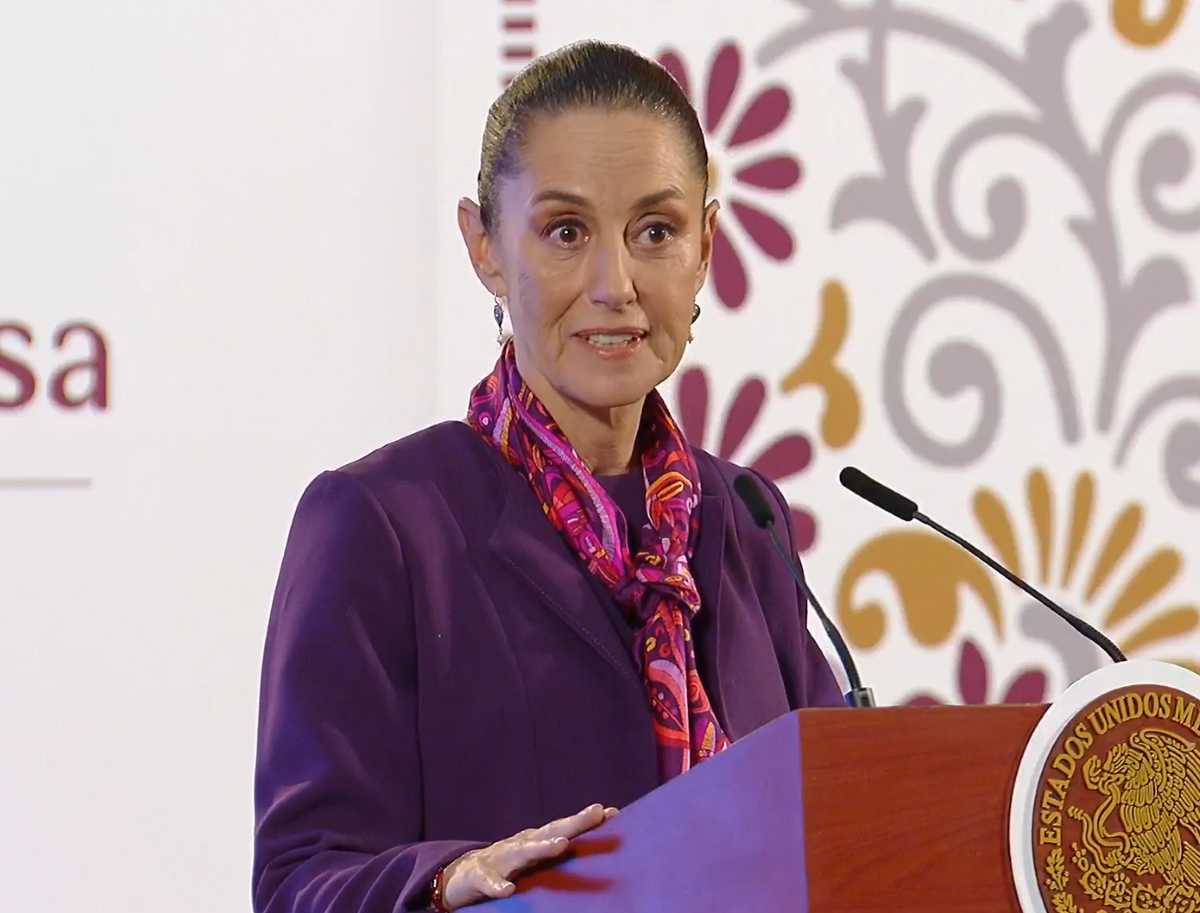Federal Government Intervenes in Controversial Querétaro Abortion Case
President Sheinbaum's morning conference highlights progress in social programs, with nearly 800,000 women registered for a new pension. Judicial reforms advance, including plans for an evaluation committee.

President Claudia Sheinbaum’s latest press conference underscored her administration’s continued focus on social welfare programs, judicial reforms, and safeguarding citizens’ rights, particularly in areas involving vulnerable populations. Addressing various issues spanning from pension registration progress to judicial appointments, Sheinbaum’s remarks highlighted her administration’s commitment to advancing social equity, transparency, and the rule of law.
One of the most significant updates shared was the near-completion of registrations for the Women’s Welfare Pension, a keystone initiative in Sheinbaum’s social agenda. According to Ariadna Montiel Reyes, Secretary of Welfare, an estimated 766,825 women aged between 63 and 64 have registered for the program. This new initiative, set to commence benefits disbursement next year, will provide registered women with a bimonthly payment of three thousand pesos. The program represents a response to persistent poverty and economic insecurity among elderly women in Mexico, a demographic disproportionately affected by economic hardship due to limited access to retirement funds or formal pensions.
Sheinbaum’s administration has framed the Women’s Welfare Pension as a step toward bridging long-standing economic gaps and providing older women with a degree of financial independence. The high registration figures reflect a demand for the program and underscore the importance of welfare-focused solutions that target vulnerable populations. As implementation progresses, the government is expected to closely monitor the program’s impact, aiming to address potential inefficiencies and extend its reach.
Judicial Reforms and the Formation of Evaluation Committees
In line with the recently enacted judicial reforms, Sheinbaum announced her administration’s commitment to upholding transparent and accountable processes in judicial appointments. As stipulated by the reform, each branch of the federal government—the Executive, Legislative, and Judicial—must now establish an Evaluation Committee consisting of five individuals tasked with overseeing the selection of candidates for judicial roles. The Evaluation Committees aim to identify and recommend qualified individuals for positions such as judges, magistrates, and ministers, ensuring that appointments are made with a view to integrity, impartiality, and public service.
Sheinbaum expressed her intention to present her nominees for the Executive Committee this week, underscoring the need for individuals of high moral standing and judicial knowledge. She emphasized the importance of rigorous selection processes in cultivating a judiciary that reflects the principles of equity, independence, and accountability.
The reforms reflect Sheinbaum’s broader effort to combat corruption and perceived political influence within the judiciary, a key point of contention in recent years as public trust in Mexican institutions has waned. This process, she stated, should serve as a model for both Congress and the courts as they move forward with their own appointments to the Evaluation Committee.
Advocacy for Women’s Rights Amid Controversial Abortion Case
In a powerful address on women’s rights and reproductive justice, Sheinbaum condemned the legal treatment of a 14-year-old girl, Esmeralda, in Querétaro. After suffering a spontaneous abortion, Esmeralda now faces potential prosecution, with authorities seeking a three-year prison sentence and substantial restitution. The controversial decision has sparked national outrage, with advocacy groups and officials criticizing the state’s response as both punitive and out of touch with contemporary standards of reproductive rights.
Sheinbaum expressed unequivocal support for Esmeralda and her family, asserting that a minor who has suffered significant trauma, including alleged sexual assault, should not face criminalization. She stressed that legal systems must protect, rather than penalize, young women in situations of profound vulnerability. The Secretariat of Women has since intervened, offering legal assistance to the family in what has become a high-profile case, casting a spotlight on the need for compassionate judicial approaches and reforms in Mexico’s handling of reproductive cases involving minors.
Turning to matters of public safety, Sheinbaum provided an update on the investigation into the recent killing of Father Marcelo Pérez in San Cristóbal de las Casas. Authorities have apprehended a primary suspect believed to be responsible for the attack on the priest, who was widely known for his community leadership and dedication to advocating for peace and justice. Sheinbaum expressed condolences to Pérez’s family and his community, assuring the public that the government remains committed to a thorough and transparent investigation to bring justice in the case.
The murder of Father Pérez has brought renewed focus on crime and violence in Chiapas, a region facing persistent security issues tied to organized crime and local conflicts. Sheinbaum’s emphasis on accountability and transparency in this case aligns with her broader strategy of reinforcing law enforcement and ensuring justice in communities affected by violence.
Condemnation of the Attack Against Evo Morales
In a closing note, Sheinbaum addressed the recent assassination attempt against former Bolivian President Evo Morales, condemning the act of violence and offering her solidarity. Sheinbaum characterized the attack as an affront to democratic principles and urged peaceful resolution to political tensions in Bolivia. Morales, a controversial yet influential figure in Latin America, has received support from Sheinbaum’s administration in the past, reflecting Mexico’s tradition of providing asylum to political figures and advocating for the peaceful resolution of regional disputes.
Sheinbaum’s Monday conference reiterated her administration’s vision for a more equitable and socially responsible Mexico, with strategic programs and reforms addressing economic, judicial, and gender-based challenges. The Women’s Welfare Pension, judicial Evaluation Committees, and legal advocacy for Esmeralda are emblematic of Sheinbaum’s policy direction, demonstrating an integrated approach to social justice, rule of law, and human rights.
As the administration prepares to roll out these programs, all eyes remain on how the policies will be implemented and what tangible impacts they will have on communities nationwide. Sheinbaum’s initiatives represent a call for stronger protections, fairer economic opportunities, and more accessible justice for all Mexicans, advancing a legacy of progressive governance in Mexico’s evolving political landscape.
President Sheinbaum's morning conference highlights progress in social programs, with nearly 800,000 women registered for a new pension. Judicial reforms advance, including plans for an evaluation committee. The government intervenes in a controversial abortion case and addresses ongoing investigations and international relations.




